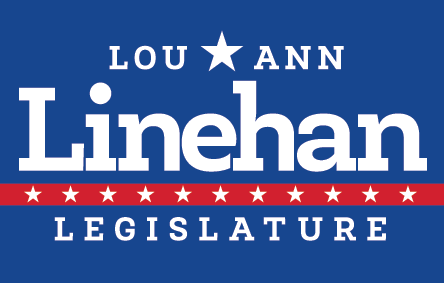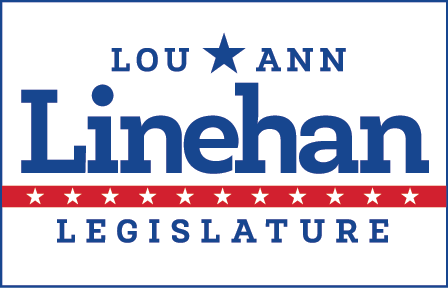22 Apr Local View: Tax reform crucial right now
By Lou Ann Linehan, Lincoln Journal Star op-ed,
The Lincoln Journal Star April 17 editorial (“Virus should lead senators to take new look at taxes“) is absolutely correct that “property tax relief for Nebraska’s farmers and ranchers remains sorely needed.”
Nebraska’s businesses and homeowners also need relief. Taxes are too high when they force retirees to move, keep families from purchasing homes and force young agricultural producers into bankruptcy.
The current economic downturn is bad, but where the economy stands later this year is still to be determined. Yes, we may be in for a long downturn, or it could be short, steep and bounce back quickly.
Consider that the recovery funds flowing into Nebraska from the federal government will exceed $5 billion when adding together the $1.25 billion for the public health emergency, direct payments of $3,400 per family of four with an income of $150,000 or less, $2.7 billion in loans through the Paycheck Protection Program, much of which will likely be forgiven, and at least tens of millions of dollars in unemployment benefits.
No one knows for certain what the future holds for the state’s financial condition but this infusion of federal dollars is going to offset, to some extent, and possibly to a large extent, the near-term negative state fiscal consequences of our fight against COVID-19.
Therefore, the idea that we need to shelve “sorely needed” property tax relief is absurd. If property tax relief was critical before COVID-19, it is even more important now, when workers and business owners are being forced to deal with the economic fallout of social distancing.
We should not repeat what happened after the Great Recession of 2009. Families tightened their belts and businesses developed ways to do more with less. But due to a great disconnect between taxpayers and tax collectors, tax levies only dropped 15% while property values statewide increased 83% between 2008 and 2018.
Property tax collections increased by more than 50% between 2008 and 2018, while inflation during that same period only totaled 17%. This disconnect contributes to the reason we sorely need property tax relief today. The fiscal reality of the public sector, aka government, cannot be completely disconnected from the fiscal reality of the private sector, including retirees, families, individuals and business.
LB1106 would replace a portion of local school property tax revenue with state revenue. Not a single school district would have less revenue under LB1106 than they have under today’s current school funding law. LB1106 imposes no new spending limits until year 2023-24, and even then schools are allowed to increase their revenues annually by 2% plus real growth.
Lincoln Public Schools, which has made the most noise in opposition to LB1106, is already levying the maximum property tax rate allowable under state law of $1.05 per $100 of valuation plus a $0.0219 exclusion, which raises the total LPS general fund levy to $1.0719.
Under current law, if nothing changes, LPS’s share of state aid to schools will be reduced by $20 million dollars for the 2020-21 school year. The decrease in state aid is a result of increased property valuations within the district’s boundaries which increases LPS’s local effort rate within the existing school aid formula.
According to the Legislative Fiscal Office, LPS will face a revenue shortfall of more than $400,000 in 2020-21 under that existing law. If LB1106 was adopted, transition aid would provide LPS with more revenue than under current law, eliminating the shortfall for the coming school year.
LB1106 is definitely a better deal for LPS and for its taxpayers. The Fiscal Office projects LPS property tax collections will increase 16.29% over the next three years under current law. But under LB1106, LPS property tax collections would increase by just 1.72% over three years.
The amount of revenue generated for LPS under current law versus LB1106 is only marginally different. And under both current law and LB1106, LPS has the flexibility to increase their maximum levy by a majority vote of their constituents if they believe that is best for Lincoln.
There are 20 senators filibustering property tax relief. They are hiding behind a filibuster because they do not want to vote against property tax relief. Nebraskans deserve to know where their state senator stands on this issue. When the Legislature returns to Lincoln we need to debate property tax relief, and we sorely need a vote to advance and pass LB1106.

